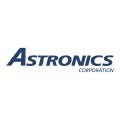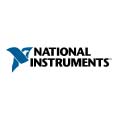
Overview
System-level debugging involves identifying and resolving errors, bugs, and issues that occur at the interaction points between different components of a system. This could include software modules, hardware components, communication protocols, and external interfaces. System-level optimization focuses on improving the overall performance and efficiency of a system. This includes making the system run faster, consume fewer resources (such as memory or processing power), and respond more quickly to user inputs. Optimization efforts might involve tuning algorithms, reorganizing data structures, optimizing communication protocols, or utilizing hardware resources more effectively.
Depending on specific features and functions, GAO Tek’s Logic Analyzers are sometimes referred to as Digital Analyzers, Signal Logic Analyzers, Logic Signal Analyzers, Digital Signal Analyzers, Logic State Analyzers and Logic Waveform Analyzers, Bus Analyzers, Digital Debugging Tools.
GAO Tek’s Logic Analyzers have the following applications in System-level debugging and optimization:
- Debugging Signal Integrity Issues: GAO’s Logic analyzers help in identifying signal integrity problems such as voltage glitches, noise, and timing violations in digital signals. By capturing and analyzing the waveform of signals at various points in the system, engineers can pinpoint anomalies that might cause data corruption or communication errors.
- Protocol Analysis: In systems involving communication protocols (e.g., I2C, SPI, UART, USB), logic analyzers assist in monitoring the data exchanges between devices. They decode and display protocol-specific data, making it easier to detect protocol violations, misinterpretations, or synchronization issues that can disrupt communication.
- Timing Analysis: GAO Tek Logic analyzers allow engineers to visualize and analyze the timing relationships between different signals in a system. This is particularly important for ensuring that various components or subsystems of a system are operating within specified time constraints, which is crucial for real-time systems and critical applications.
- State Machine Debugging: Complex systems often include state machines that dictate the behavior of different components. GAO’s Logic analyzers help engineers visualize state transitions and validate whether the system is following the expected sequence of states. This is valuable for diagnosing issues related to improper sequencing or unexpected state transitions.
- Performance Optimization: GAO Logic analyzers provide insights into the performance of a system by allowing engineers to examine the timing and frequency of events. This information can be used to identify bottlenecks, optimize code execution, and improve the overall efficiency of the system.
- Embedded Software Debugging: GAO’s Logic analyzers are used to debug embedded software running on microcontrollers and processors. They help in tracing program flow, monitoring variable values, and identifying issues like infinite loops or unexpected behavior caused by software bugs.
- Bus Analysis: When multiple devices communicate over shared data or address buses, GAO’s logic analyzers enable engineers to capture and analyze bus transactions. This is essential for diagnosing issues like contention, data corruption, or improper bus arbitration.
- System Integration Testing: GAO Tek Logic analyzers facilitate testing during the integration of various subsystems. Engineers can observe how different parts of the system interact, helping them to catch unexpected behavior, data mismatches, or synchronization problems.
More information on Logic Analyzers and their applications in other industries can be found on this page:
This category page lists related Logic Analyzers:
GAO Tek’s targeted markets are North America, particularly the U.S., Canada, Mexico, and Europe. Hence, in addition to English, this website gaotek.com is offered in other major languages of North America and Europe such as Spanish, French, German, Italian, Polish, Ukrainian, Romanian, Russian, Dutch, Turkish, Greek, Hungarian, Swedish, Czech, Portuguese, Serbian, Bulgarian, Croatian, Danish, Finnish, Norwegian, Slovak, Catalan, Lithuanian, Bosnian, Galician, Slovene, Latvian, Estonian, Welsh, Icelandic, and Irish.
Complying with System-level debugging and optimization Standards
GAO Tek’s Logic Analyzers comply or help our customers comply with the System-level debugging and optimization standards such as
- IEEE 1149.1 (JTAG)
- IEEE 1149.7 (cJTAG)
- MIPI Debug and Trace Standards
- ARM CoreSight
- USB PD Debug and Trace
- Ethernet Debugging Standards
- PCI Express (PCIe) Debugging and Tracing
- IEEE 1500 (Embedded Core Test)
- SATA/ATA Debugging Standards
- CAN (Controller Area Network) Debugging Standards
- Automotive Debugging Standards
- RTOS Vendor-Specific Debugging Interfaces
Complying with Government Regulations
GAO Tek’s Logic Analyzers comply or help our customers comply with the U.S. government regulations such as
- Export Administration Regulations (EAR)
- International Traffic in Arms Regulations (ITAR)
- Digital Millennium Copyright Act (DMCA)
- Federal Communications Commission (FCC) Regulations
- Intellectual Property Laws and Patents
- Contractual and Industry Regulations
GAO Tek’s Logic Analyzers comply or help our clients comply with the Canadian regulations such as
- Export Controls and Controlled Goods Program (CGP)
- Copyright Act and Digital Locks
- Radiocommunication Regulations (Radio Equipment)
- Intellectual Property Laws and Patents
- Industry-Specific Regulations
- Cybersecurity Regulations and Data Protection Laws
GAO Tek’s Logic Analyzers comply or help our clients comply with the Mexican regulations such as
Export Controls and Technology Transfer Regulations
Depending on the capabilities of the logic analyzers and their potential applications, they might be subject to export controls and technology transfer regulations in Mexico. Regulations could pertain to the export of sensitive technologies or items that have dual-use potential.
- Intellectual Property Laws and Regulations
- Industry-Specific Regulations
- Data Protection and Cybersecurity Regulations
- Radiofrequency and Telecommunications Regulations
- Import and Customs Regulations
- Technology Transfer Agreements
GAO Tek’s Logic Analyzers comply or help our clients comply with the European regulations such as
- EU Export Control Regulations
- CE Marking and EMC Directive
- RoHS Directive
- Intellectual Property and Copyright Laws
- Cybersecurity Regulations and Data Protection Laws
- Radio Equipment Directive
- Industry-Specific Regulations
- Import and Customs Regulations
Case Studies of Logic Analyzers in System-level debugging and optimization
Logic Analyzers are sometimes called as Digital Signal Analyzers, Logic State Analyzers, Signal Logic Analyzers, Digital Logic Analyzers, Logic Waveform Analyzers, Pattern Generators, Protocol Analyzers, Digital Pattern Analyzers, Signal Transition Analyzers, and Logic Waveform Capturers.
Here are some practical examples of using Logic Analyzers in System-level debugging and optimization:
A research institution in Boston employed logic analyzers to debug and optimize the performance of a high-performance computing cluster used for complex simulations. The logic analyzers captured and analyzed data transfers, memory access patterns, and synchronization issues within the cluster’s interconnected components. The insights gained from the logic analyzer helped researchers identify bottlenecks and fine-tune the cluster’s configuration for improved processing speeds and efficiency.
A financial services firm in New York City used logic analyzers to diagnose and resolve intermittent communication issues within their network infrastructure. The logic analyzers assisted in capturing and analyzing data signals across various network devices, helping the IT team identify packet loss, latency spikes, and other anomalies. This allowed them to optimize network configurations and ensure smooth operations for critical financial transactions.
A robotics research laboratory in Pittsburgh integrated logic analyzers into their development process to debug complex embedded systems. They employed logic analyzers to analyze digital signals between sensors, actuators, and control units in their robotic platforms. By closely examining signal timing and protocol interactions, the team identified synchronization issues and optimized the execution of control algorithms, resulting in smoother and more accurate robotic movements.
A data center in the Northern Virginia region utilized logic analyzers to optimize the performance of their server racks and storage systems. Logic analyzers helped the data center engineers identify I/O bottlenecks, analyze data flow patterns, and detect anomalies that affected overall data center efficiency. The insights gained from the logic analyzer facilitated adjustments to data distribution and load balancing strategies, leading to improved data processing and reduced latency.
An engineering firm in Hartford leveraged logic analyzers to troubleshoot real-time control systems implemented on FPGAs (Field-Programmable Gate Arrays). The logic analyzers captured and analyzed digital signals within the FPGA logic circuits, enabling engineers to identify timing violations, race conditions, and unexpected behavior. This allowed them to fine-tune the FPGA designs and optimize the overall performance of the control systems.
An automotive manufacturer in Detroit employed logic analyzers to optimize the engine control systems in their vehicles. Logic analyzers were used to capture and analyze digital signals related to sensors, actuators, and control units. By scrutinizing signal timing and data communication patterns, engineers identified timing issues and synchronization problems. This allowed them to fine-tune the engine control algorithms, resulting in improved fuel efficiency and emissions performance.
A telecommunications company in Chicago utilized logic analyzers to debug and optimize their real-time communication networks. The logic analyzers captured data traffic between network components, revealing packet loss, latency spikes, and protocol irregularities. With insights from the logic analyzer, the network engineers reconfigured routing protocols and optimized bandwidth allocation, enhancing overall network reliability
An industrial manufacturing facility in Cleveland integrated logic analyzers into their automation systems to enhance efficiency. Logic analyzers were used to analyze digital signals exchanged between sensors, programmable logic controllers (PLCs), and robotic arms. By analyzing signal transitions and response times, engineers identified bottlenecks and optimized the sequence of automation tasks, resulting in increased production output and reduced cycle times.
A rail transportation company in Toronto employed logic analyzers to optimize the control systems of their trains. Logic analyzers captured digital signals from onboard sensors, control units, and communication interfaces. By analyzing signal timing and communication patterns, engineers identified synchronization issues and improved the overall efficiency and safety of the rail network.
A renewable energy company in Calgary used logic analyzers to debug and optimize their energy grid control systems. Logic analyzers captured digital signals from solar panels, wind turbines, and energy storage units. By analyzing signal transitions and response times, engineers detected irregularities and fine-tuned the energy distribution algorithms, leading to a more stable and efficient renewable energy grid.
An aerospace manufacturer in Montreal employed logic analyzers to enhance the reliability of their avionics systems. Logic analyzers were used to analyze digital signals within aircraft control systems and communication modules. By examining signal integrity and timing accuracy, engineers identified issues that could affect system performance and flight safety, leading to optimized avionics systems.
A medical equipment manufacturer in Vancouver utilized logic analyzers to debug and optimize complex medical imaging devices. Logic analyzers captured digital signals from sensors, data processors, and image output components. By analyzing signal quality and timing discrepancies, engineers identified sources of image artifacts and improved the accuracy and reliability of medical diagnoses.
A manufacturing company in Monterrey integrated logic analyzers into their production lines to optimize their smart manufacturing processes. Logic analyzers were used to analyze digital signals within automated machinery and control systems. By closely examining signal timing and interactions, engineers identified inefficiencies and optimized manufacturing workflows, leading to increased productivity and reduced operational costs.
A renewable energy company in Mexico City utilized logic analyzers to monitor and optimize their solar energy generation systems. Logic analyzers captured digital signals from solar panels, inverters, and energy storage systems. By analyzing signal quality and fluctuations, engineers detected irregularities and fine-tuned the energy conversion algorithms, resulting in enhanced energy production and grid stability.
A manufacturing facility in Milan integrated logic analyzers into their production lines to optimize efficiency. Logic analyzers captured digital signals from automated machinery, PLCs, and robotic arms. By analyzing signal transitions and response times, engineers identified bottlenecks and streamlined manufacturing processes, leading to increased productivity and reduced costs.
An aerospace manufacturer in Toulouse employed logic analyzers to debug and optimize avionics systems. Logic analyzers were used to analyze digital signals within aircraft control units, communication interfaces, and navigation systems. By analyzing signal integrity and timing, engineers optimized flight control algorithms and communication protocols.
A railway company in Berlin utilized logic analyzers to optimize the control systems of their train operations. Logic analyzers captured digital signals from onboard systems, track sensors, and control centers. By analyzing signal interactions and timing, engineers identified areas for improvement in train scheduling, signaling, and operational efficiency.
GAO RFID Inc. a sister company of GAO Tek Inc., is ranked as a top 10 RFID supplier in the world. Its RFID, BLE, and IoT Logic Analyzers have also been widely used in System-level debugging and optimization.
Shop RFID Systems
Access Control Software
Use of Logic Analyzers with Leading Software and Cloud Services in System-level debugging and optimization
GAO Tek has used or has facilitated its customers to use GAO’s Logic Analyzers with some of the leading software and cloud services in their applications. Examples of such leading software and cloud services include.
Certainly, here are the names of the application software for logic analyzers commonly used for System-level debugging and optimization:
- National Instruments LabVIEW
- Keysight BenchVue
- Tektronix OpenChoice Desktop
- Agilent/Keysight Logic Analyzer Control Software
- Rohde & Schwarz R&S ScopeSuite
- LeCroy Logic Studio
- Pico Technology PicoScope Software
- Siglent EasyScopeX Software
- Anritsu MSO/DS Control Software
- Teledyne LeCroy Logic Analyzer Software
- MATLAB
- Python
- Microsoft Excel
- Sigrok
- Saleae Logic Software
GAO Tek’s Logic Analyzers and their applications in other industries are listed on this page:
Other related Logic Analyzers can be found at this category page:
Meeting Customer’s Demands
Large Choice of Logic Analyzers
In order to satisfy the diversified needs of their corporate customers, GAO Tek Inc. and its sister company GAO RFID Inc. together offer a wide choice of testing and measurement devices, network Logic Analyzers, RFID, BLE, IoT, and drones.
Fast Delivery
To shorten the delivery to our customers, GAO has maintained a large stock of its Logic Analyzers and is able to ship overnight within the continental U.S. and Canada, and fast delivery to Mexico and Europe from the nearest warehouse.
Local to Our Customers
We are located in both the U.S. and Canada. We travel to customers’ premises if necessary. Hence, we provide a very strong local support to our customers in North America, particularly the U.S., Canada and Mexico and Europe. Furthermore, we have built partnerships with some integrators, consulting firms and other service providers in different cities to further strengthen our services. Here are some of the service providers in System-level debugging and optimization we have worked with to serve our joint customers:
- Accenture
- Deloitte Consulting
- IBM Global Services
- Boston Consulting Group
- McKinsey & Company
- Capgemini
- PWC
- Tata Consultancy Services (TCS)
- Cognizant
- SAP Services
GAO Has Many Customers in System-level debugging and optimization
The Logic Analyzers from both GAO Tek Inc. and GAO RFID Inc. have been widely used in “System-level debugging and optimization” by many customers, including some leading companies. Here is more information on applications of GAO RFID Inc.’s Logic Analyzers in System-level debugging and optimization.
RFID Systems By Industry
Specialty Services Industry | RFID Solutions
Here are some of GAO’s customers in System-level debugging and optimization:
- SPEA
- National Instruments Corporation
- Rohde & Schwarz GmbH & Co. KG
- Teradyne, Inc.
- Advantest Corporation
- ProMation Engineering
- TestEquity
- Xcerra Corporation (now part of Cohu)
- ATS Automation Tooling Systems Inc.
- Keysight Technologies
- Astronics Test Systems
- Chroma ATE Inc.
- Marvin Test Solutions
- Cisco
- Saleae
- Sugarshot
- Viavi Solutions
- Anritsu Corporation


















Contact Us
If you are interested in our Logic Analyzers, services or partnering with us, please feel free to contact us by filling out this form:
or email us at sales@gaotek.com
